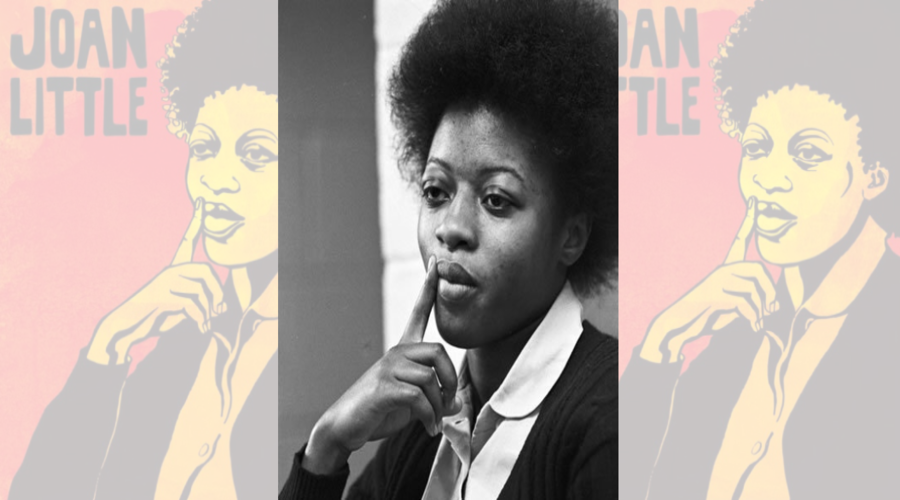
In the era of Me Too, especially for black women whose cries are rarely heard, and especially when Black women are disappearing and/or being killed at an alarming rate, it’s important to know history…and the history of defending yourself as a women against sexual assault, being heard, and fighting against a system designed to keep you caged. This history includes the case Joan Little, which is as inspiring as it is infuriating.

Joan Little, left, and defense attorney Karen Galloway in the lobby of the Wake County Courthouse in Raleigh, N.C., on July 14, 1975

To add insult to injury, the evidence of the “attack” in Joan’s cell had been cleaned up prior to the State Bureau of Investigation arrival, which was a “violation of standard procedure in a murder case.” Despite this, the state denied the defense’s motion to have crucial evidence gathered for safekeeping. They also forced Joan to wear shackles, preventing her from greeting her supporters or the dignity of being a human who protected herself against assault.

Joan’s case became a major headline, with Time Magazine reporting on the now 21-year-old’s appearance in court. Mind you, this was a few years after the #FreeAngela movement and Civil Rights leader Angela Davis was very vocal in her support for Little, her rights to self-defense, and the sexual and racial abuse women faced in prisons. The case of Joan Little became a rallying cry, highlighting the injustices black women face.

I ask North Carolina, if there was a White woman who had stabbed a Black man who was attempting to rape her, would that White woman be on trial today? That white woman would be given a medal of honor. Well, hell, we think as much of our women as White men think of their women. – Rev. Ralph Abernathy
Throughout all of this, Joan has no money. Her lawyers worked for free. She could not afford her bond. The Southern Poverty Law Center offered for help and raised money for her defense and her bail.

A jury of six whites and six blacks deliberated for 78 minutes before acquitting Joan of first degree murder. She was sent back to jail to serve the remaining time on her robbery sentence. Still not with the shits, Joan escaped again in 1977, a month short of parole. She was captured a few months later and was sent back to jail to serve time remaining plus time for escaping.

Joan Little was freed from prison in June 1979. She was 26. Joan Little disappeared from public view in 1989.


Little’s case opened the door for women, but black women specifically, to defend themselves against sexual attacks against their white male assaulters/rapists. Joan wasn’t the first person violated by Alligood but she was most certainly the last. Little’s case, and the massive support support surrounding it, shined a light on the atrocities black women, and women in general, face in attempting be safe from unwanted sexual advances and assaults, especially when vulnerable such as being incarcerated. In the hyper-aware era of “Me Too”, we must look at Little’s case to determine how far we have come and how far we have to go.

Thank you Joan Little for not being with the shits.

